Your Guide To Choosing The Right Trailer Hitch
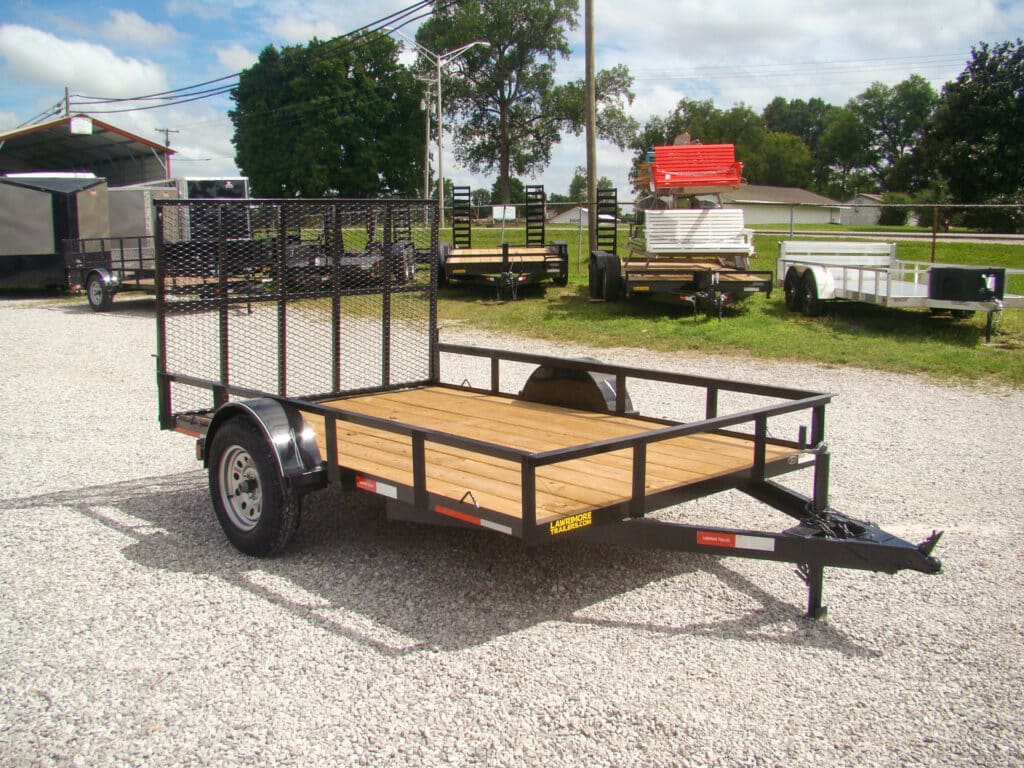
Choosing the right trailer hitch can be a daunting task. After all, there are many classes and types of trailer hitches to choose from, and it can be overwhelming to sort through all the options and ensure you’ve selected the right one. In this guide, we’ll simplify your search for the right trailer hitches by reviewing all the options and the steps for choosing the right one.
What Are The Classes Of Trailer Hitches?
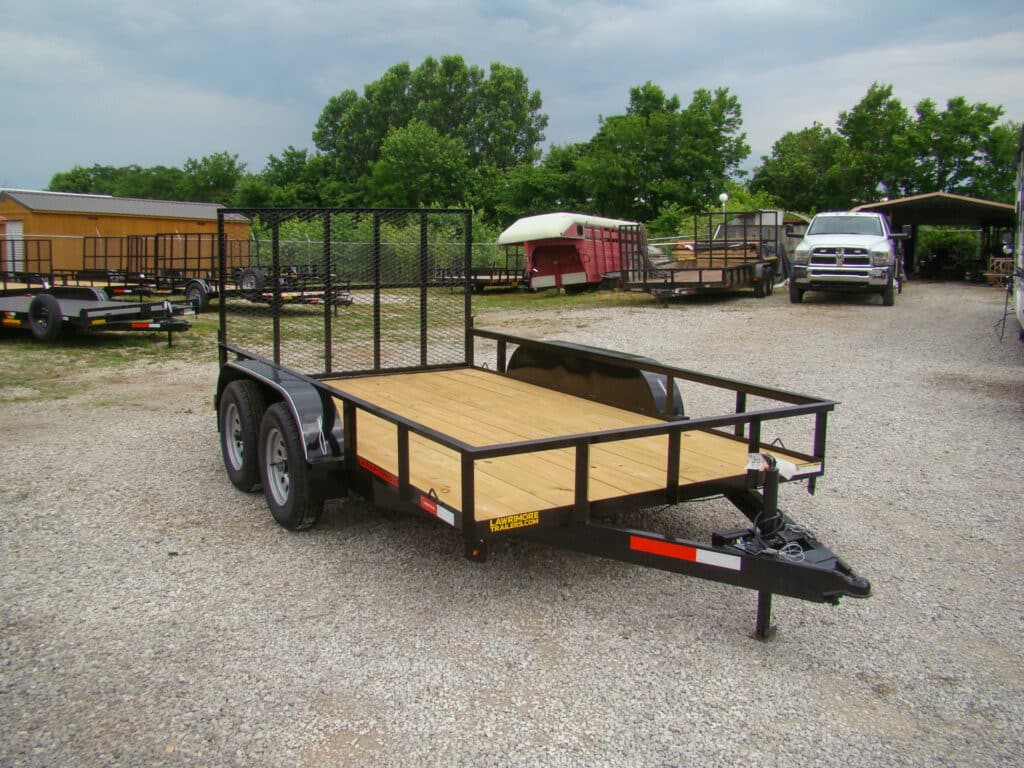
One keyword you’ll find when searching for trailer hitches is the available classes of hitches. The trailer hitch class tells you their weight capacity and the type of vehicle they are most compatible with. These mostly only apply to the receiver style of trailer hitch. Let’s go over the five classes of trailer hitches:
Class I Trailer Hitch
A class I trailer’s gross trailer weight (GTW) is 2,000 pounds. It’s most compatible with small cars, sedans, and compact SUVs and is best used for hauling lightweight trailers, bike racks, and cargo carriers.
Class II Trailer Hitch
The GTW of a Class II Trailer Hitch is 3,500 pounds, and it is best used with small SUVs, minivans, and light-duty trucks. Class II trailer hitches can tow medium-sized trailers, small boats, and small campers.
Class III Trailer Hitch
A class III trailer hitch has a weight capacity of 8,000 pounds (GTW) and is best suited for midsize SUVs, full-size SUVs, and pickup trucks. It can haul larger trailers, boats, and utility trailers.
Class IV Trailer Hitch
A class IV trailer can accommodate 10,000 pounds of gross trailer weight. It’s typically used with full-size SUVs and heavy-duty trucks and can tow large boats, travel trailers, and other heavy-duty loads.
Class V Trailer Hitch
A class V trailer hitch can accommodate 20,000 pounds of gross trailer weight. It is best paired with heavy-duty trucks and commercial vehicles and used for large trailers, construction equipment, and other commercial purposes.
What Are The Different Types of Trailer Hitches?
On top of all the classes of trailer hitches, you’ll also come across different types of trailer hitches. These come in different shapes and sizes and are equipped to handle various towing needs and vehicle configurations. These types of trailer hitches are available in a number of different classes. Let’s take a look at some of the most common types.
Receiver Hitches
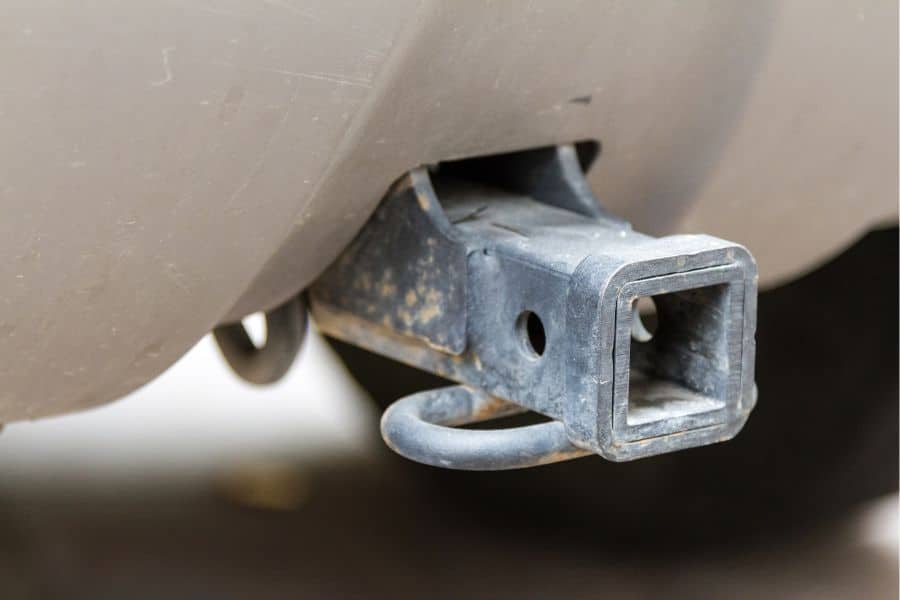
This is the most common type of trailer hitch that you’ll come across. It features a square receiver tube to affix various hitch-mounted accessories and towing equipment. Receiver hitches are available in classes I through V but are most commonly used for towing trailers, attaching bike racks, cargo carriers, and other accessories.
Fifth Wheel Hitches

As the name implies, this hitch is most commonly used for towing large RVs and campers. It mounts in the bed of a pickup truck and uses a kingpin mechanism to connect to the trailer. This and most other types of trailer hitches on this list are not identified by the class system. They are typically able to handle weights ranging from 15,000 to 30,000 pounds.
Gooseneck Hitches

The gooseneck hitch style relies on a ball and coupler connection but, in other ways, is very similar to a fifth-wheel hitch. It’s best used for towing agricultural and commercial equipment, horse trailers, and flatbeds. Their GTW capacity often goes up to 30,000 pounds.
Bumper Hitches
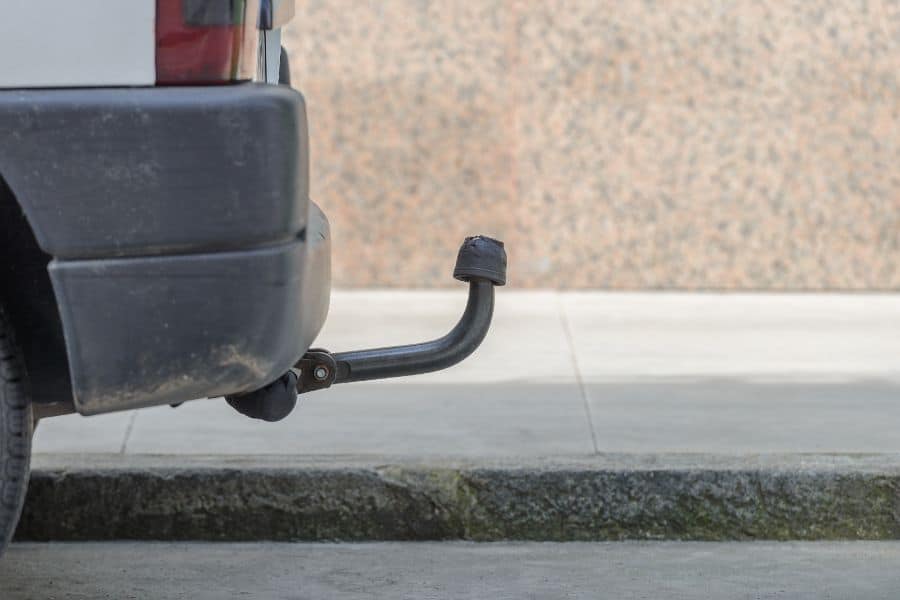
This hitch style, as the name suggests, is attached to the bumper of the vehicle. They are hitched to a ball mount on the rear bumper or to a receiver hitch mounted on the vehicle’s frame on the rear. Then, the ball mount is connected to the coupler of the trailer. This type of trailer hitch is best suited for hauling smaller loads.
Pintle Hitches
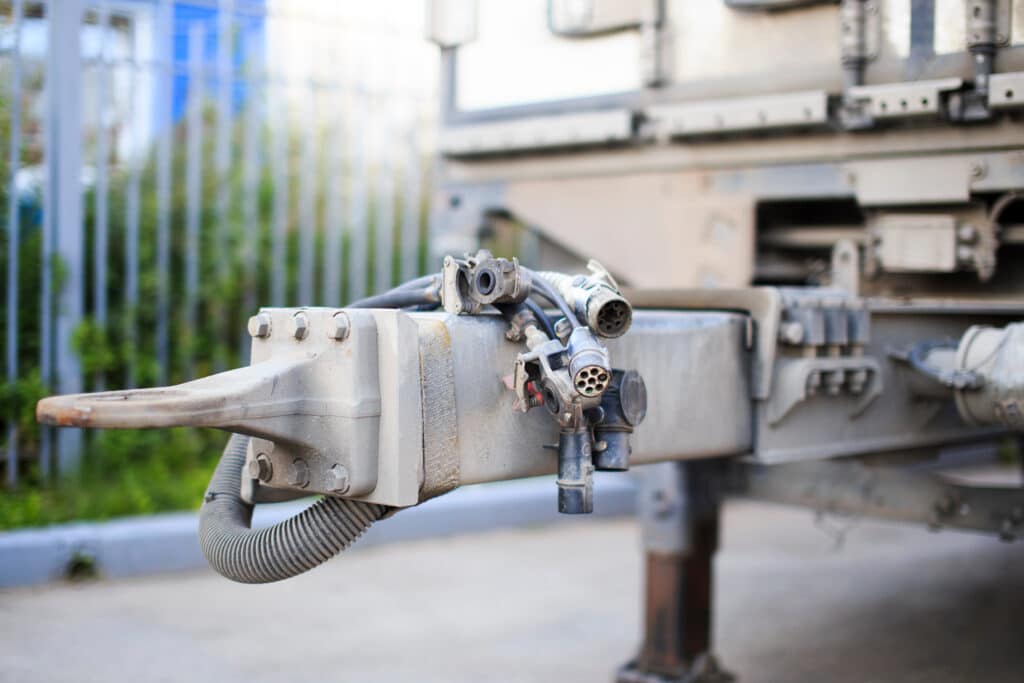
These connect to trailers using a pintle hook and lunette ring. The weight capacity of this trailer hitch depends on its design. It’s typically used for Heavy-duty, off-road, military, agricultural, and industrial towing.
Front Mount Hitches
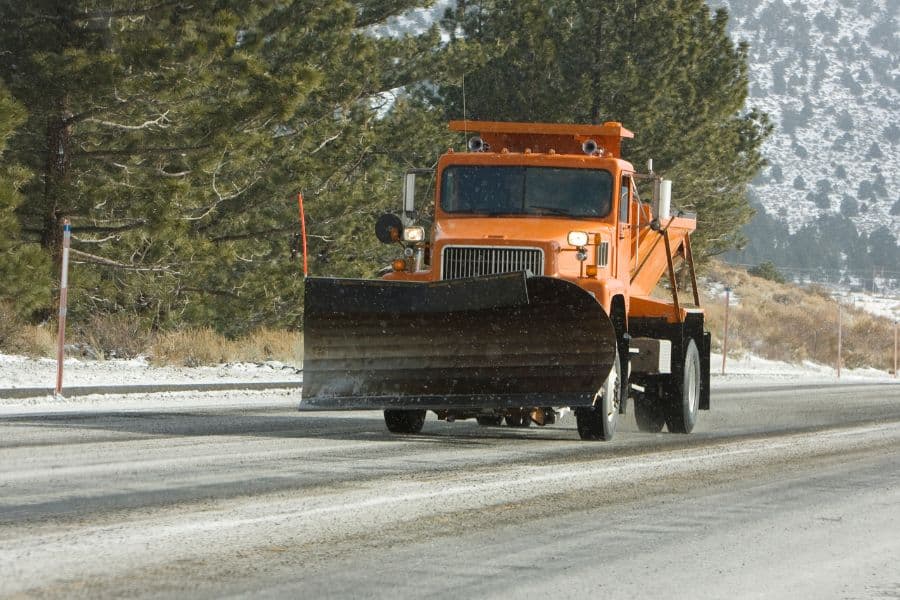
This hitch, as the name implies, is mounted to the front of your vehicle. It’s typically used for vehicle accessories that need to be mounted on the front, like a snow plow or winch. They can also be used to help trailers navigate tight spaces. They are typically identified by their use rather than their weight capacity.
Weight Distribution Hitches
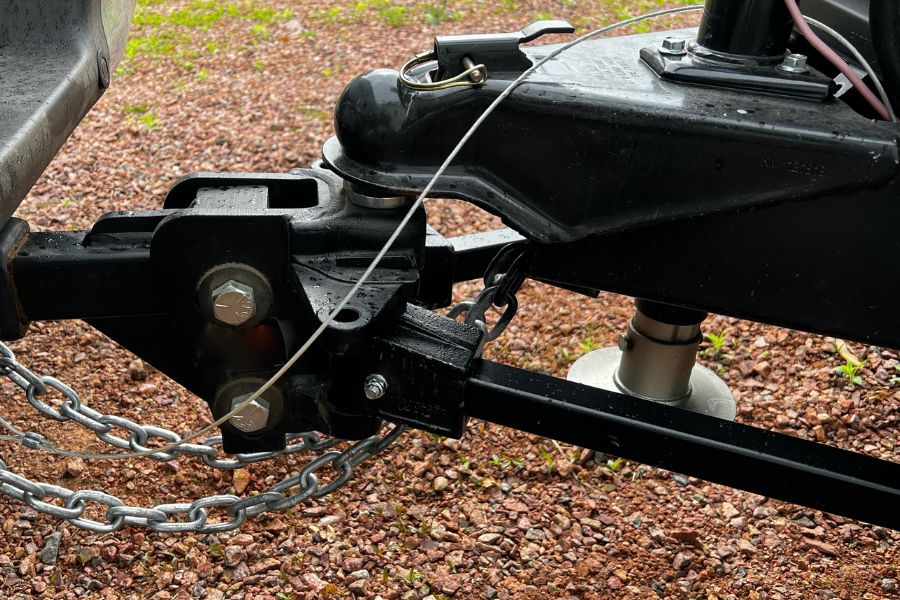
These hitches are selected for their ability to distribute the tongue weight (the downward force exerted by the trailer tongue on the hitch ball) more evenly across the vehicle and trailer axles in order to improve stability. Weight distribution hitches are best used for towing large trailers and RVs, especially those whose tongue weight exceeds the vehicle’s towing capacity.
Adjustable Hitches
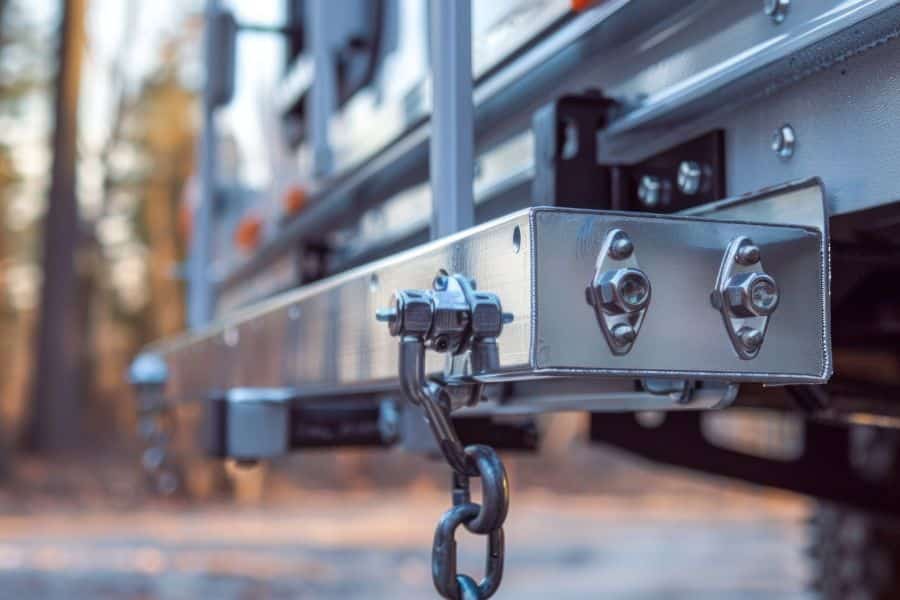
Adjustable hitches can be adjusted to different height settings to accommodate different trailer heights. These are a more versatile option as they can be modified to fit the needs of the trailer.
Drop Hitches
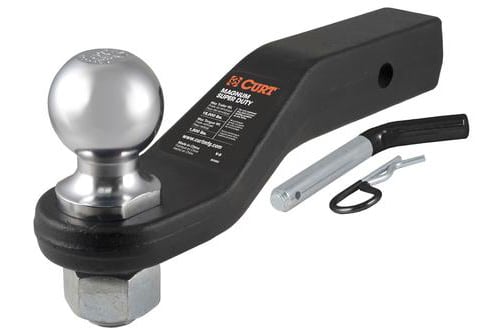
Drop trailer hitches have a fixed amount of drop or raise to match the trailer height to the towing vehicle, which ensures stability and control. This is a better choice for trailers that consistently require a regular height adjustment.
Cushioned Hitches
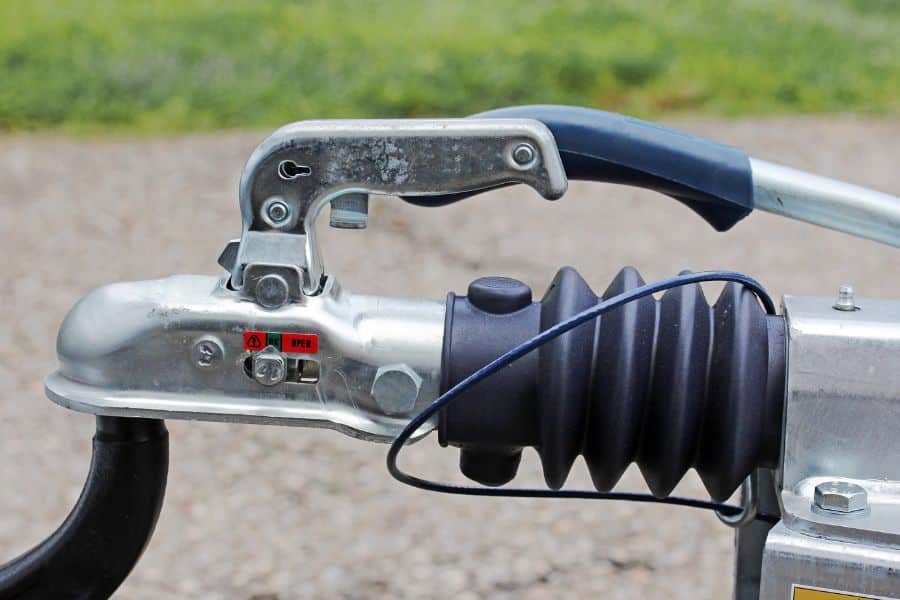
This trailer hitch is equipped with shock-absorbing materials or cushioning in order to prevent jolts and vibrations while moving. A cushioned hitch is a good choice if you’re looking for a smoother towing experience and less wear and tear on your vehicle.
How To Determine Which Hitch To Buy
Determining which hitch to buy can be difficult, especially if you want to haul different trailer types or load sizes. Let’s explore some factors to keep in mind as you search for the right trailer hitch, as well as go over step by step how you can determine the right hitch for your vehicle.
What To Consider When Choosing A Trailer Hitch?
Here are a few things to keep in mind as you search for the right trailer hitch for your vehicle:
Towing Capacity
One of the most important considerations to make when choosing a trailer hitch is your vehicle’s towing capacity. Once you check your owner’s manual to determine its maximum capacity, you can then select a hitch that meets or exceeds the weight of the trailer you plan to tow.
A hitch with insufficient towing capacity can cause damage to your vehicle while one that has an excessive towing capacity can be costly and actually comprise stability. Ensuring that your hitch towing capacity aligns with your vehicle and trailer’s needs will help you guarantee a secure and reliable connection and a successful haul.
Vehicle Make & Model
As touched upon previously, it’s important to select a trailer hitch that is compatible with your vehicle. If you know your vehicle’s make and model, you can easily find out what hitch is right for your vehicle, whether from a hitch manufacturer’s guide or down below, where we cover some vehicle make and models and which hitch is right for them. If you’re still having trouble determining which of the trailer hitch types is right for you, please contact us, we’d be happy to help!
Towing Needs
What are you planning on towing? If you know what you’re planning to tow and how much it ways, you can choose the weight class or hitch style above that best aligns with your needs. For example, if you’re only planning on towing a bike rack, a Class I receiver hitch would be a good choice for you. However, if you’re planning on towing an RV, you may want to choose a fifth-wheel hitch.
Trailer Tongue Weight
The tongue weight is the downward force exerted on the hitch ball by the trailer. You’ll want the tongue weight to be compatible with the limits of both your hitch and your vehicle. Most professionals recommend a tongue weight of 10-15% of the total trailer weight for a secure and balanced haul. If you have any questions about what trailer tongue weight is appropriate for your towing needs, please contact us!
Budget
Of course, you’ll also want to find a trailer hitch that fits within your budget. Even on a budget, you can find a quality hitch that meets your towing needs.
The total cost of a trailer hitch will depend on the type of hitch, installation fees, and its weight class. Typically, most trailer hitches cost between $100-$400, while installation can range from $50-$500. Adjustable and drop hitches can be user-installed, making them a more cost-effective option.
It’s important always to purchase the trailer hitch that best fits your needs. While there may be a more affordable option, if it doesn’t fit your needs, it can lead to damage to your vehicle, trailer, or both. So, a compatible hitch will save you money in the long run.
Safety and Breaking Features
Lots can happen out on the road, it’s important to have a hitch system that guards against potential accidents and complies with local regulations. Some states may require specific trailer braking features, so it’s important to check with your local government before selecting a trailer hitch, especially if your trailer exceeds a specific weight limit.
There are a number of different safety and breaking features you can incorporate into your trailer hitch system to ensure a successful haul. A trailer stability assist will automatically apply the brakes if your trailer begins to sway. An integrated locking mechanism will secure your hitch, preventing the connection from easily coming loose. A weight distribution system will help distribute the weight evenly across your vehicle and trailer for a more balanced tow.
Of course, the options don’t end there. Explore the features that are out there to address any of your concerns and guarantee your trailer’s safety.
Durability
Find a hitch that’s constructed only using durable and high-quality materials to ensure successful tows and a long-lasting hitch. If you have any questions about the durability of our trailer hitches, feel free to contact us for additional information.
Reputation Of The Retailer
As you search for a trailer hitch, you want to get one from a retailer that you can trust. Someone who not only offers high-quality products but also specializes in all things trailer-related. You want a retailer who cares about your concerns and is willing to help you with any questions or concerns that may arise.
Here are a few reasons why you should consider Four Winds Trailers:
Heavy-Duty Construction: Our hitches are designed with durable and high-quality materials, ensuring that you can haul the toughest and heaviest of loads.
Quality Service: We’re here to help you every step of the way. So, you can contact us with any questions or concerns you may have and we’re ready to assist you!
Trailer Experts: We don’t just offer trailer hitches. We have a range of trailer products, from trailers themselves to other parts like wheels and tires. So whatever your trailer needs, we have the products and expertise to help!
Safety Guaranteed: Our adjustable trailer hitches guarantee your haul is protected and reliable, regardless of the length of your trip.
Step By Step Guide To Determine The Right Hitch For Your Vehicle
It may be confusing to sort through all those factors to determine exactly what hitch is the perfect fit for your vehicle. Let’s break it down, step-by-step, to simplify the decision-making process.
- Identify Your Towing Needs
- What are you hauling? A boat, an RV, a U-Haul, or livestock? With that in mind, you can determine the gross trailer weight (GTW) and the tongue weight (TW) and find the hitch type and class that best fits your needs.
- What are you hauling? A boat, an RV, a U-Haul, or livestock? With that in mind, you can determine the gross trailer weight (GTW) and the tongue weight (TW) and find the hitch type and class that best fits your needs.
- Check Your Vehicle’s Towing Capacity
- Find out your vehicle’s towing capacity in your owner’s manual or on the manufacturer’s website. Then, determine the gross combined weight rating (GCWR), the maximum weight allowed for the vehicle, trailer, passengers, cargo, and all fluids. For the total towing capacity, you subtract the curb weight of your vehicle and the weight of passengers and cargo from the GCWR.
- Find out your vehicle’s towing capacity in your owner’s manual or on the manufacturer’s website. Then, determine the gross combined weight rating (GCWR), the maximum weight allowed for the vehicle, trailer, passengers, cargo, and all fluids. For the total towing capacity, you subtract the curb weight of your vehicle and the weight of passengers and cargo from the GCWR.
- Match Hitch Class To Your Needs
- Now that you know your vehicle’s towing capacity, you can match it to the trailer hitch class that best aligns with your towing weight requirements. Feel free to revisit the trailer class section of this guide to find the one with the weight capacity you need.
- Now that you know your vehicle’s towing capacity, you can match it to the trailer hitch class that best aligns with your towing weight requirements. Feel free to revisit the trailer class section of this guide to find the one with the weight capacity you need.
- Consider The Trailer Hitch Types
- While choosing a receiver hitch in the weight classification you need can be the right choice, you may require another type of trailer hitch. For example, an adjustable or drop trailer hitch may be a better choice if you need to adjust your hitch to accommodate varying weights.
- While choosing a receiver hitch in the weight classification you need can be the right choice, you may require another type of trailer hitch. For example, an adjustable or drop trailer hitch may be a better choice if you need to adjust your hitch to accommodate varying weights.
- Check Compatability With Your Vehicle
- Finally, you’ll want to ensure that it’s compatible with your vehicle. Check to make sure the hitch can be mounted on your vehicle, either on the frame or the bumper. Determine the shank size of the vehicle’s receiver tube to find a hitch that will fit in it.
- In addition, measure for the proper clearance from the ground. To do this, you’ll measure the distance from your receiver to the ground. If you’re planning to purchase a drop hitch, subtract 14” from that measurement to ensure optimal drop.
Keep on reading to learn more about which trailer hitch is the right fit for your vehicle.
What Trailer Hitch You Need For Your Vehicle?

One important step in choosing the right trailer hitch for your vehicle is to ensure that it’s compatible with your vehicle. Here are some frequently asked-about vehicles and which of the trailer hitch types is best suited for them:
What Trailer Hitch Do You Need For A Chevy Equinox?
Generally, the towing capacity for most Chevy Equinoxes is 1,500 to 3,500 pounds, so a class II or III hitch would be the best fit for your vehicle. As for the type of trailer hitch, a receiver hitch is best suited for this vehicle. However, it’s best to determine the type of trailer and haul you’ll be carrying and the GTW and TW, as well as the exact model of Chevy Equinox, before you make a purchasing decision.
What Trailer Hitch Do You Need For A Honda CRV?
Typically, the towing capacity of a Honda CRV is 1,500 pounds, so a class I or II hitch is best suited for this vehicle. Again, a receiver hitch would be the best trailer hitch type for a Honda CRV. However, you should also consider what you’re planning to tow and the GTW and TW.
What Trailer Hitch Do You Need For a Toyota Rav4?
In general, a Toyota RAV4’s towing capacity ranges from 1,500 to 3,000 pounds, meaning that a class II or III hitch is best suited for this model, as well as a receiver hitch. It’s best to go based on the exact make and model of Toyota RAV4 you have, along with what you’re towing and its GTW and TW.
What Trailer Hitch Do You Need For a Tractor?
Tractors often vary in size, ranging from 1,000 to 5,000 pounds; rather than class, you’ll want to opt for a specific trailer hitch type, such as a pintle hitch. Before making a purchasing decision, determine the exact type of equipment you plan to haul and the GTW and TW. In addition, you’ll want to consult your tractor’s owner’s manual to find its exact towing capacity.
What Trailer Hitch Do You Need For a Jeep Grand Cherokee?
Depending on the exact make and model of your Jeep Grand Cherokee, it’s towing capacity ranges from 3,500 to 7,200 pounds, so a class III or IV hitch is a good match for this vehicle. In this case, a receive hitch is the best trailer hitch type. However, you should always consider what you’re towing, the GTW and TW, as well as the exact make and model of your vehicle before making a purchasing decision.
What Trailer Hitch Do You Need For a Nissan Frontier?
The towing capacity for a Nissan Frontier can range from 3,500 to 6,700 pounds, so a class III or IV hitch is best suited for this vehicle. In this case, a receiver hitch would be the type to choose for this vehicle. It’s important to always consider what you’re towing, its GTW and TW, and the exact make and model of Nissan Frontier before deciding which trailer hitch is best for you.
What Trailer Hitch Do You Need For a Tesla Model S?
A Tesla Model S is not designed for towing, and Tesla does not provide an official towing capacity for it. Some use it to tow small loads and bike racks, so a class I receiver hitch would be the best choice if you do decide to tow something with this vehicle.
What Trailer Hitch Do You Need For a Ford Escape?
The towing capacity of a Ford Escape ranges from 1,500 to 3,500 pounds, so a class II or III receiver hitch would be the best fit for this vehicle. However, before you decide which trailer hitch to purchase, it’s best to determine the exact make and model of your Ford Escape as well as what you plan to tow and it’s GTW and TW.
Get A Trailer Hitch For Your Vehicle Today
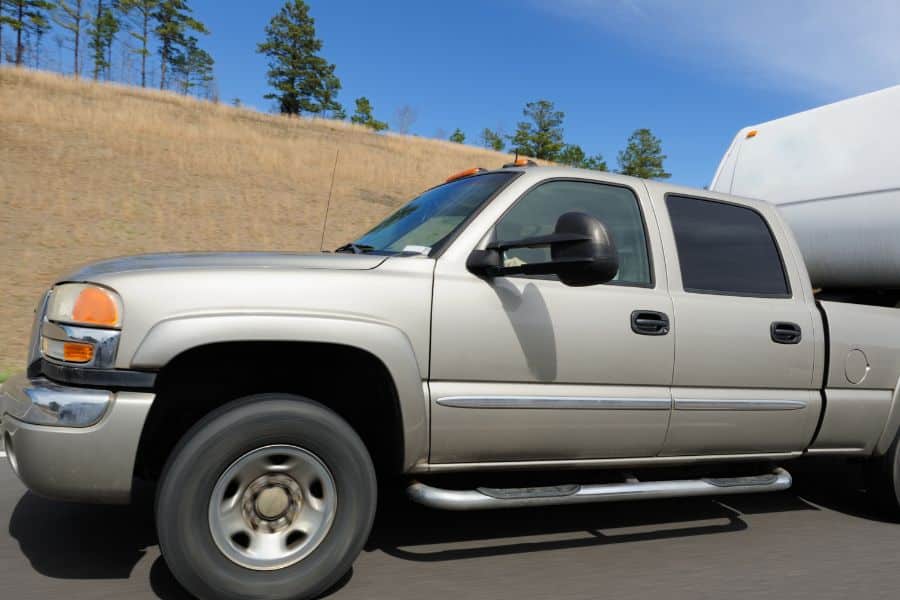
If you’re interested in purchasing a trailer hitch for your vehicle, here at Four Winds Trailers we have a range of options available so you can find the one that best suits your needs. Feel free to contact us if you need any help at all finding the right trailer hitch for youe vehicle. If you need a trailer or any other trailer parts, we have those available as well. Get everything you need to tow your load from Four Winds Trailers.
